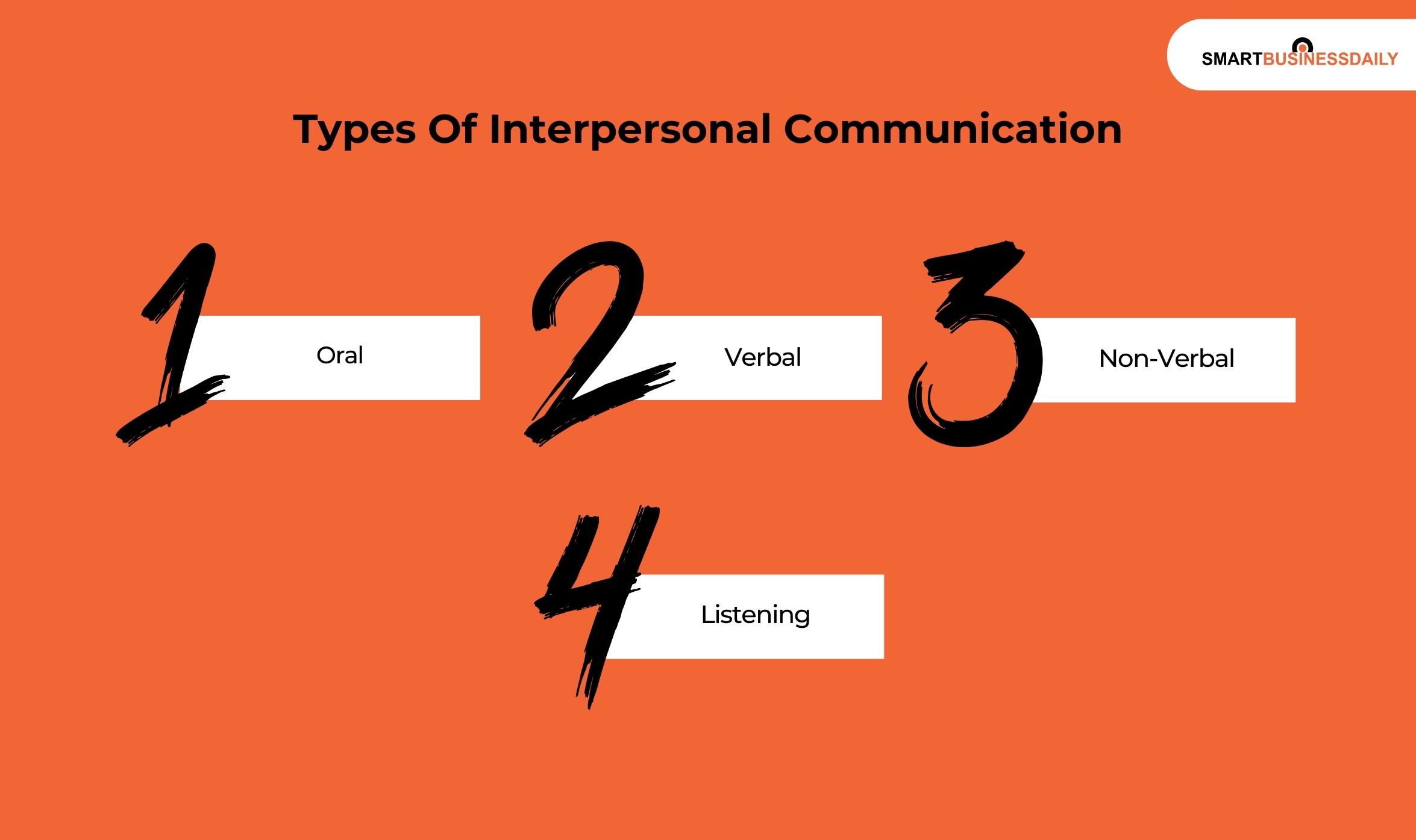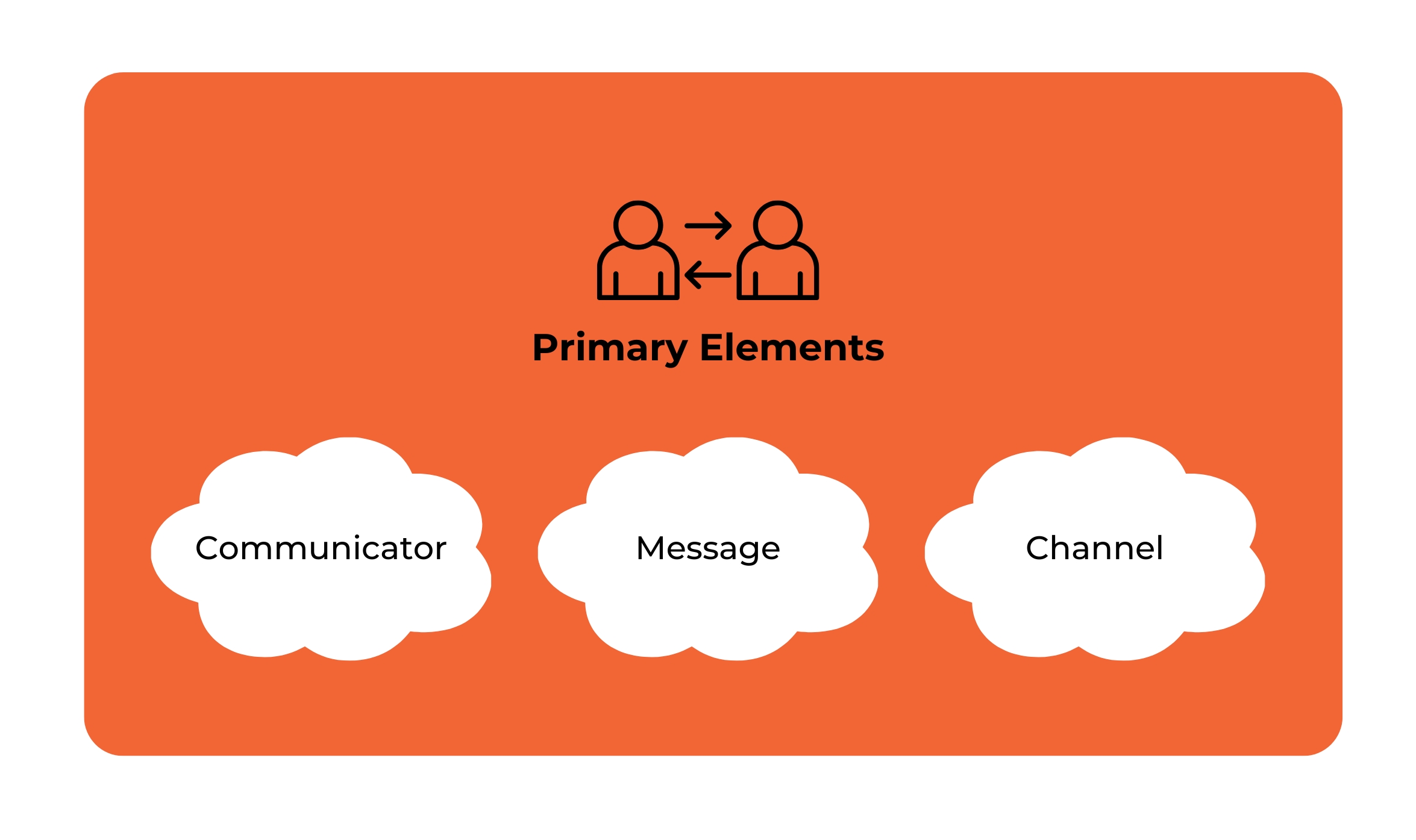Understanding What is Interpersonal Communication for Growth
04 December 2024
7 Mins Read

toc impalement
Just imagine that you have a great idea to grow your business. However, you are dead in the water if you lack the communication skillset, then. In this article, we will be looking at some of the most prominent reasons for developing interpersonal communication skillsets.
Therefore, follow along as we take you on a journey to understand the essential components of interpersonal communication, and to understand what interpersonal communication is.
Let’s go!
What is Interpersonal Communication?

The first proponent of running a business is communication. You might have everything to run a business effectively. However, it will not matter if you do not have the basic skills of interpersonal communication. But what is interpersonal communication?
Interpersonal communication is the basic process of exchanging information, feelings, and ideas through a myriad of means. This kind of communication could be face-to-face or via a digital medium.
Interpersonal communication is mainly used inside an organization. Therefore, it can be an essential and valuable medium of communication. However, that is not all. In this article, we would like to discuss some of the most prominent aspects of interpersonal communication so that you understand it.
Types of Interpersonal Communication

To have a practical understanding of what is interpersonal communication, you need to have some idea about its variation. In this section and the following subsections, we would like to point out or discuss some of the most prominent variations that you can come across. Let’s go!
Oral
Oral communication is one of the most prominent variations of interpersonal communication. It can be referred to as a phone call, public speaking, a meeting, and so much more. Oral interpersonal skills are critical and are ranked very high in a corporate setting.
In fact, a person with good oratory skills would shine in several areas like business communication or marketing communication. Areas where the person has to interact and deal with human beings daily.
Verbal
Verbal, on the other hand, is the form of communication that encompasses the usage of words. This could be a text, e-mail, report, paper, etc. Therefore, any communication involving words is a part of verbal communication.
Then again, you must remember that the communication arrays are changing rapidly. In fact, emojis and GIFs have started taking their places in corporate communication as well. This changes the definition to some extent.
Given the hybrid nature of today’s work, verbal communication is not just another skill. It is a mandatory skill set that every worker needs to have.
Non-Verbal
Non-verbal communication is any form of communication that does not involve words. This could be a gesture, a look, etc. Nonverbal communication does not use words to convey messages. However, they are communicated, nonetheless.
Non-verbal communication has also evolved dramatically over time. Nowadays, there are means to convey messages in different and robust ways. In fact, the very throw of words is enough to express emotions at times.
Lastly, video calls can also be a great interpersonal communicator where visual cues along with words are used to convey messages.
Listening
Finally, listening is another essential means of communication. A person who never listens is a person who cannot communicate effectively. Therefore, communication is the key.
Active listening is a great way to take in information along with making a person feel heard. This is very important as it allows the individual to understand what a person or an organization needs and serve accordingly.
Active listening is difficult to master, especially if you struggle with socialization. However, it is a necessary skill set that you need.
Why Do You Need Interpersonal Communication

Interpersonal communication is the basis of running a business. You can only function if you have the right communication system. Therefore, you need it at every level.
This section is a testament to that statement. Here are some of the most prominent reasons why you need interpersonal skills to function:
Problem-Solving
The foremost reason for having an excellent interpersonal communication system is to solve problems. Problems can arise at any point in time. Therefore, you must understand the essence of communicating the problem and its subsequent solution.
Therefore, you need this for solving problems that come your way. Without interpersonal communication, the problem would become prominent and the solutions more complicated. Consequently, it is required.
Alignment of Goals
Every business has its own goals that they want to achieve. However, tracking and managing this goal can take a lot of work. You need to communicate the goal across the hierarchy.
This is only possible with proper communication. Poor communication between senior management and employees can create a rift in the business process. Therefore, there needs to be a sense of semblance to make things work effectively.
Trust
Trust is fundamental to building a business. You cannot function or work without trust. Trust is the key. It would help if You had it to progress and make decisions. Thankfully, interpersonal communication builds trust and creates an optimal space to function.
Make sure that you are transparent and honest across the hierarchy. This will ensure that the business is functioning effectively. Hence, trust and transparency are among the most favorable outcomes of understanding interpersonal skills.
Primary Elements

Interpersonal communication is primarily an umbrella term. This means that several processes and factors make up this term. In the following section and subsections, we will point out some of the most prominent aspects of interpersonal communication skills you need.
Communicator
The first line of the interpersonal communication process involves communicators. Communicators are the two ends of communication. In other words, the person sending and receiving a message is called the communicator.
In every communication, there are at least two communicators. People who come forward to share information. Therefore, communicators are the two primary nodes of a communication channel that you must understand.
Message
The second primary component of communication is the message itself. You must understand that a communication system is only valid if a piece of valid information is disseminated across the board.
In other words, it is not a communication array if a piece of information is not relayed. Therefore, the message is what validates a communication system. Hence, it is lauded to be so important.
Channel
The final component of an interpersonal communication system is the channel itself. The channels play a vital role in today’s corporate communication norms. Channels decide the kind of communication two people can have.
Face-to-face communication is one of the critical aspects of communication. It gives the other person an actual sense of what a person is saying or feeling. This is one of the essential elements of an interpersonal communication array.
How to Improve Interpersonal Communication Skills

Interpersonal communication is one of the most important aspects of running a successful business. You need to understand that it is essential to being in the industry. Therefore, you must have these skills.
However, more than being communicative is required. It would help if you were professionally communicative to become more palatable. We have discussed why you need the skill. Here, we will be discussing how you can polish your skills further.
Here are some of the most essential and prominent skills that you need to polish your interpersonal skills effectively:
- Communication: This is a basic necessity. It would help if You were communicative about what you want and seek.
- Courtesy: This is another must-have. It would help if You needed to be communicative and courteous about things. Do not criticize people in the name of communication.
- Flexibility: Not everyone would get you the first time or understand your messages. Therefore, be flexible and ensure that the person understands you. That is the ulterior goal you need to strive towards.
- Integrity: A person with high values is always valued above everyone else. Therefore, have integrity.
- Professionalism: In the corporate, even the most hurtful things can be forgiven if it is said in a professional tone.
- Responsibility: Be responsible for your words and the things that you say. Do not just say things for the sake of saying things. Be accountable and understand what you are talking about and who you are talking to.
Interpersonal Vs Intrapersonal
Interpersonal communication is essential, but do not refute the importance of intrapersonal communication. Both of them are two sides of a similar coin. Therefore, understanding one is important for understanding the other.
In this closing section, we will not be very detailed about the difference, as we also have a dedicated article on intrapersonal. Make sure to check that out. But for basic understanding, you must know one fundamental difference.
Interpersonal communication is used to communicate within an organization. At the same time, intrapersonal communication is involved when two or more organizations interact effectively.
The End
In the end, this is what interpersonal skills are. It is an essential skill set that businesses and officials need to teach daily. Therefore, if you want to become good at your job, you need to understand the nuances of communication clearly.
Otherwise, what is the point of even having a business? If you liked this content, please let us know and follow us for more such content on business and how to grow. Thank you and have a great day ahead.
Read More:


















Comments Are Closed For This Article